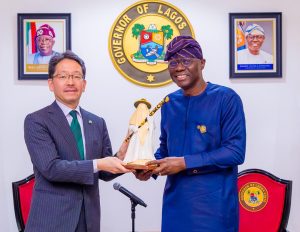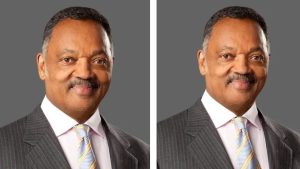
The Nigerian military will need a budget of not less than $6bn in three years to effectively tackle the growing security crises across the country, the Defence Headquarters has said.
According to the Director of Production, DHQ, Air Vice Marshall M. A. Yakubu, the country will have to budget not less than $2bn annually and consecutively for at least three years to be able to make the Armed Forces efficient.
He said N100bn additional fund for the Armed Forces was not enough.
Yakubu made this known in Abuja on Monday at a public hearing organised by the House Committee on Defence, on the Armed Forces Support Trust Fund (Establishment) Bill, 2021.
The House had introduced the bill over the growing security crises across the country.
The bill seeks to “creatively make funds available through deductions from statutory receipts of the Federal Government as well as voluntary donations” for five years, subject to extension.
However, Yakubu stated the annual N100bn being projected to be an additional fund to the Armed Forces would still leave them underfunded.
The AVM said, “The last time – about two weeks ago, we had a brief discussion of what we intended to generate from this. We are estimating something in the range of N100bn per annum. Convert that to dollars because virtually all the equipment is imported. This will go nowhere! And it would not address the problem we are seeking to address unless we expand the sources.
Yakubu added, “If we are not able to raise a minimum of $2bn per annum in the next three years for a start, subsequently maybe we can begin to taper down the percentages; but for a start, we need a bulk sum because many of these manufacturers of equipment require 100 per cent down payment to even start production.
“So, you cannot sign a contract, for example with the US manufacturers, and pay 15 per cent mobilisation as required by the Procurement Act. Nobody will look at you. Their terms must be followed. Many times we are asked to pay 100 per cent. The example is the Super Tucano. This one is on government-to-government (basis). They insist on 100 per cent payment within 30 days. No budgetary allocation will fund that.”
The AVM noted that he was conversant with procurement and logistics in the military, with his experience of being a defence attaché with the United States from 2014 to 2017, Director of Procurement at the headquarters of the Nigerian Air Force for another two years, and Chief of Logistics also at the headquarters of the NAF for another two years.
He said, “Every year, how do we get our budget, capital budget specifically? An arbitrary envelope is simply thrown at us. This year, for example, your budget cap should be N20bn. It does not take into consideration what the actual needs are; what do you need to meet those needs? Now that is one.
“The next thing I want to talk about is the cost of equipment. Talking from the point of view of an Air Force officer who has been involved in procurement of equipment, let me give you an example: The procurement of the 12 Super Tucano aircraft cost approximately $500m. Now this is a package. The United States would not sell equipment to you and just give you the equipment there. There must be a support package for a minimum of three years. There must be training and other things. That total package came to that amount. How many years would it take you to budget (that amount)?”
Yakubu recalled that the highest amount that was received as capital allocation by the Nigerian Air Force, from 2017 to date, was about N44bn per annum.




226835 652984I dugg some of you post as I cogitated they were extremely beneficial invaluable 810565
992613 349565I truly appreciate this post. Ive been looking all over for this! Thank goodness I discovered it on Bing. Youve produced my day! Thank you once more.. 947718
683578 353491Appreciate it for helping out, superb details. 860040
891004 135460Bookmarked your wonderful web site. Fabulous function, distinctive way with words! 476987
753547 954543Echt tolle Seite. Rubbish bin eigentlich nur per Zufall hier gelandet, aber ich bin jetzt schon complete von der tremendous Seite beeindruckt. Gratuliere dazu!! Viel Erfolg noch durch der sehr guten Home-page mein Freund. 944432
229687 315450As I website owner I believe the articles here is really amazing , thankyou for your efforts. 366117
390669 101986Thanks for taking the time to discuss this topic. I actually appreciate it. Ill stick a link of this entry in my weblog. 494955
391289 608872Really usefull blog. i will follow this weblog. maintain up the great function. 674851
993921 347906Sounds like some thing a lot of baby boomers really should study. The feelings of neglect are there in several levels when a single is over the hill. 579389
301816 992798It can be tough to write about this subject. I think you did an superb job though! Thanks for this! 614308
81552 815250A actually fascinating read, I may possibly effectively not agree totally, but you do make some quite legitimate factors. 99498
732298 967549Hi there, just became aware of your weblog by means of Google, and found that its truly informative. Ill be grateful should you continue this in future. Lots of individuals will benefit from your writing. Cheers! 69102
92175 420833Perfectly indited content , thanks for selective info . 327308
795841 274665Hello. Excellent job. I did not expect this. This really is a excellent articles. Thanks! 623914
343004 408670There is noticeably a bundle to learn about this. I assume you produced positive excellent points in attributes also. 724949
299597 752219extremely nice post, i surely really like this internet site, maintain on it 23020
728457 677988Aw, this was a actually nice post. In thought I would like to place in writing in this way moreover – taking time and actual effort to create a quite great article but what / issues I say I procrastinate alot and also no indicates apparently get something done. 140088
494886 866255An fascinating discussion could be valued at comment. I do believe which you basically write read far more about this subject, it may well not often be a taboo subject but normally persons are too couple of to dicuss on such topics. To a higher. Cheers 787110
635296 802027But a smiling visitor here to share the love (:, btw wonderful pattern . 716375